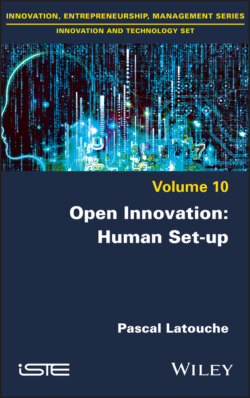Читать книгу Open Innovation - Pascal Latouche - Страница 9
I.1. No obvious predisposition
ОглавлениеIn marketing, I had never really designed products in digital format! However, I knew from all my previous experiences within the current company (Telecom) and from all my experiences before this company (Agro-Food), how to put a given product or service on the market (positioning, competition, price, preferred channels, etc.). As a marketing expert, I recognized that I was, because I had been to the right professional (business) schools.
In sales, I had never held a sales position (too shy and unassuming, a lack of chatter, as we would commonly say, the person you don’t notice). I don’t know how to sell and I never knew how to sell myself (it’s still true today)! My tasks have always concerned product argumentation. In short, writing down for salespeople what they needed to say to sell the product well. But you can well imagine that a salesperson sells more as they are rewarded for the sales in question. Not all products are rewarded. My sales arguments and other commercial tools were therefore sales aids and did not in any way presume the success of the sale itself. I rather like to consider my tasks in sales as a natural extension of my marketing expertise.
With the innovation coming out of R&D, my job in essence was to identify solutions not used to date (tucked away in drawers) and to evaluate what the company could do with them in consultation with the marketing and sales teams. This task was very interesting. I hadn’t worked with pure engineering profiles until then. I admit that it took me some time to adapt to understanding what they were saying. By understanding, I mean knowing how to ask the right questions so that the expression of their technical discourse could become audible to the non-engineer that I am. It was also during this period that the scope of my tasks broadened, because technical products often require development. For those who experienced the 2010–2013 period, I think they would recall the emergence of the start-up weekend-type events. The latter were very badly labeled “start-up weekends”, since they were mostly developers who were in between pitching sessions, eating pizza and drinking cola! During these weekends, I really appreciated supporting, with my marketing and sales expertise, developers who on Friday evenings proposed their ideas and had the weekend to develop it. Developing an application in a weekend to hope to be the winner on Sunday night was very challenging. Modestly, I was making my contribution to these “techy” weekend warriors who have my total respect!
So, as I was saying, in terms of the profile for taking responsibility for a corporate start-up accelerator, I wasn’t quite in the picture, as some would say. I’ve never created a start-up, and I’ve always been an employee. Thanks to my diplomas and a strong work ethic, I enjoyed working in relatively stable comfort. I say relatively stable because the sociology of large organizations sometimes imposes a balancing act on employees and we must avoid falling off. Finally, if you do it well, if you work well and avoid expressing too many sincere opinions, you receive your salary and finally, unless you have a social plan, you have peace of mind.
There is one point I will discuss, because it will be important for what follows. None of the positions I had held in the companies in which I had worked, or in which I work, existed before I was entrusted with them. In short, I have always systematically forged my own job using the company as a kind of resource provider (a “business angel” in a way…). At the time, I was not aware of the importance of this point, which turned out to be an essential asset with hindsight. In any case, at the time I took over responsibility for this corporate start-up accelerator, I was not aware of this asset, so it was a bit like I didn’t consciously have it. Moreover, those who appointed me responsible for the corporate start-up accelerator to be created, knew nothing about it. Not being aware of an asset, or that your environment is not aware of an asset, can be problematic if you want to capitalize on it….
